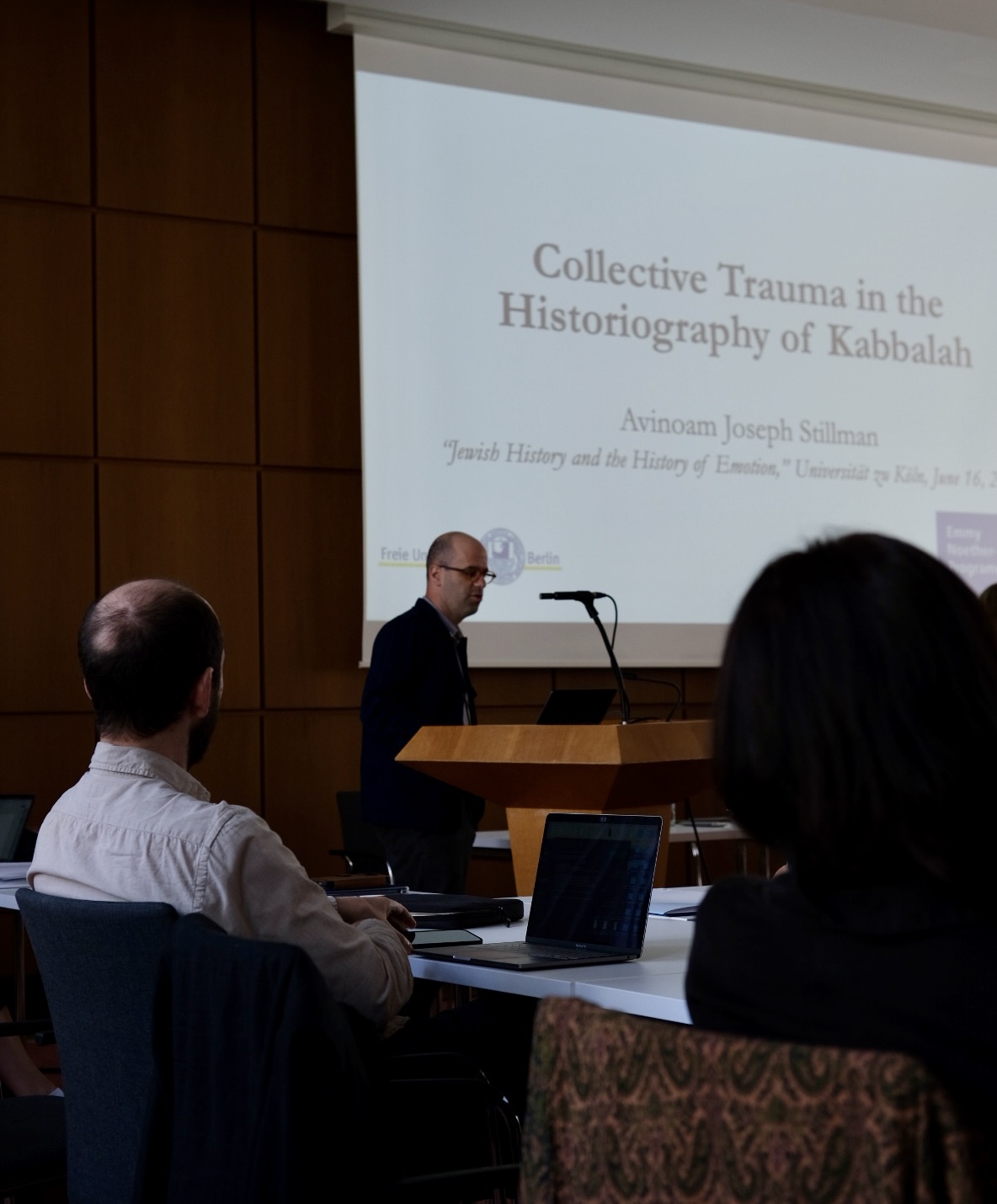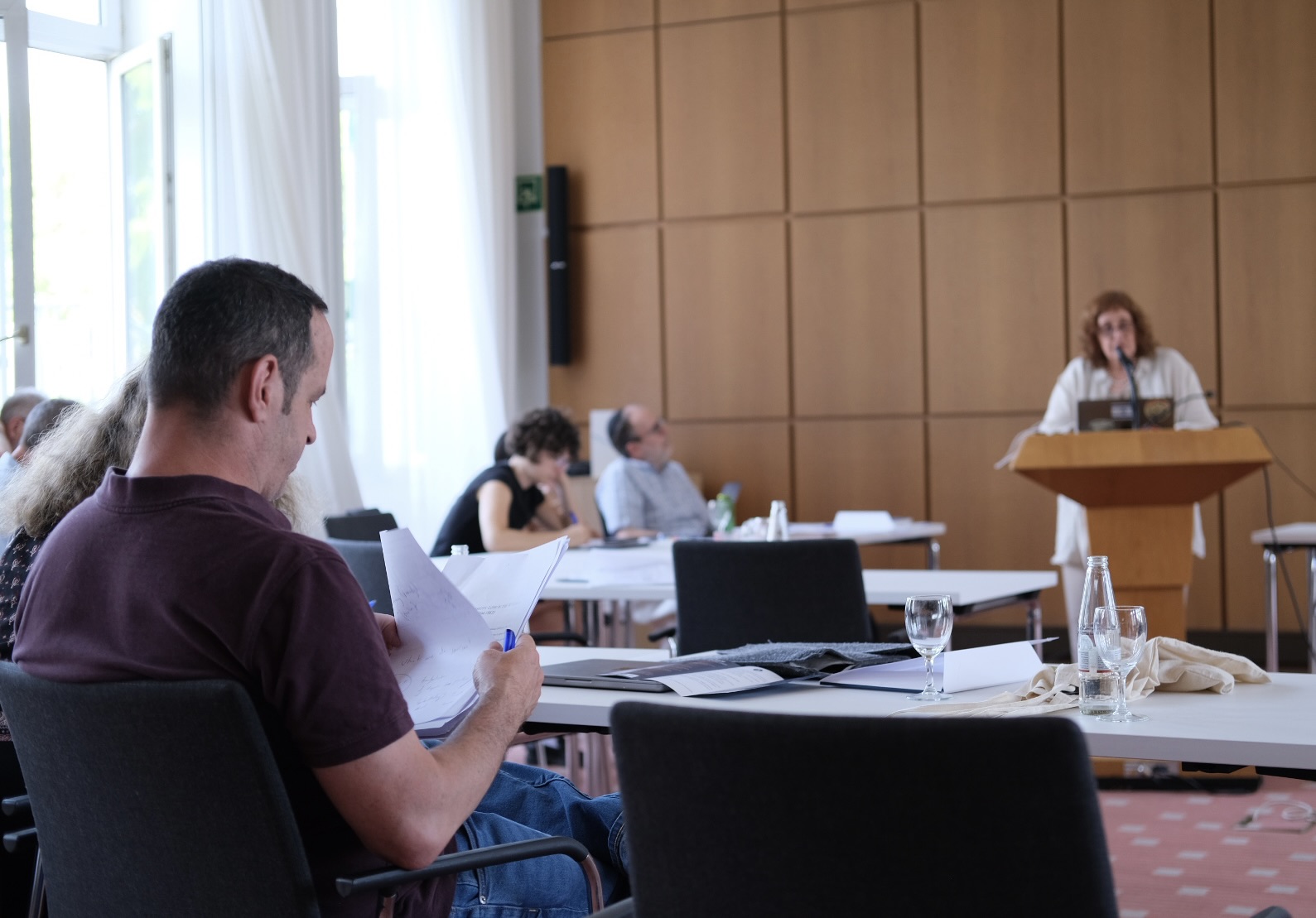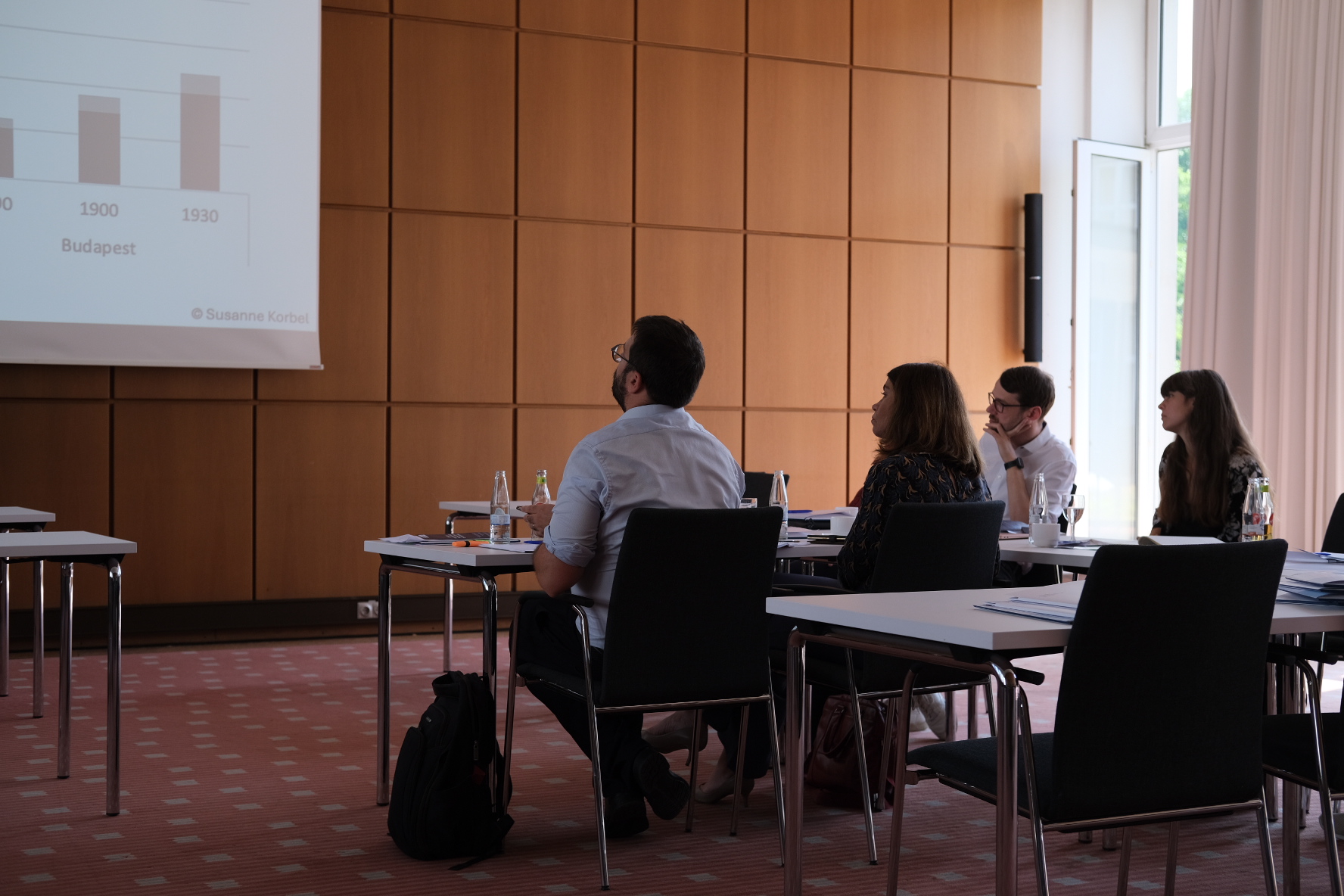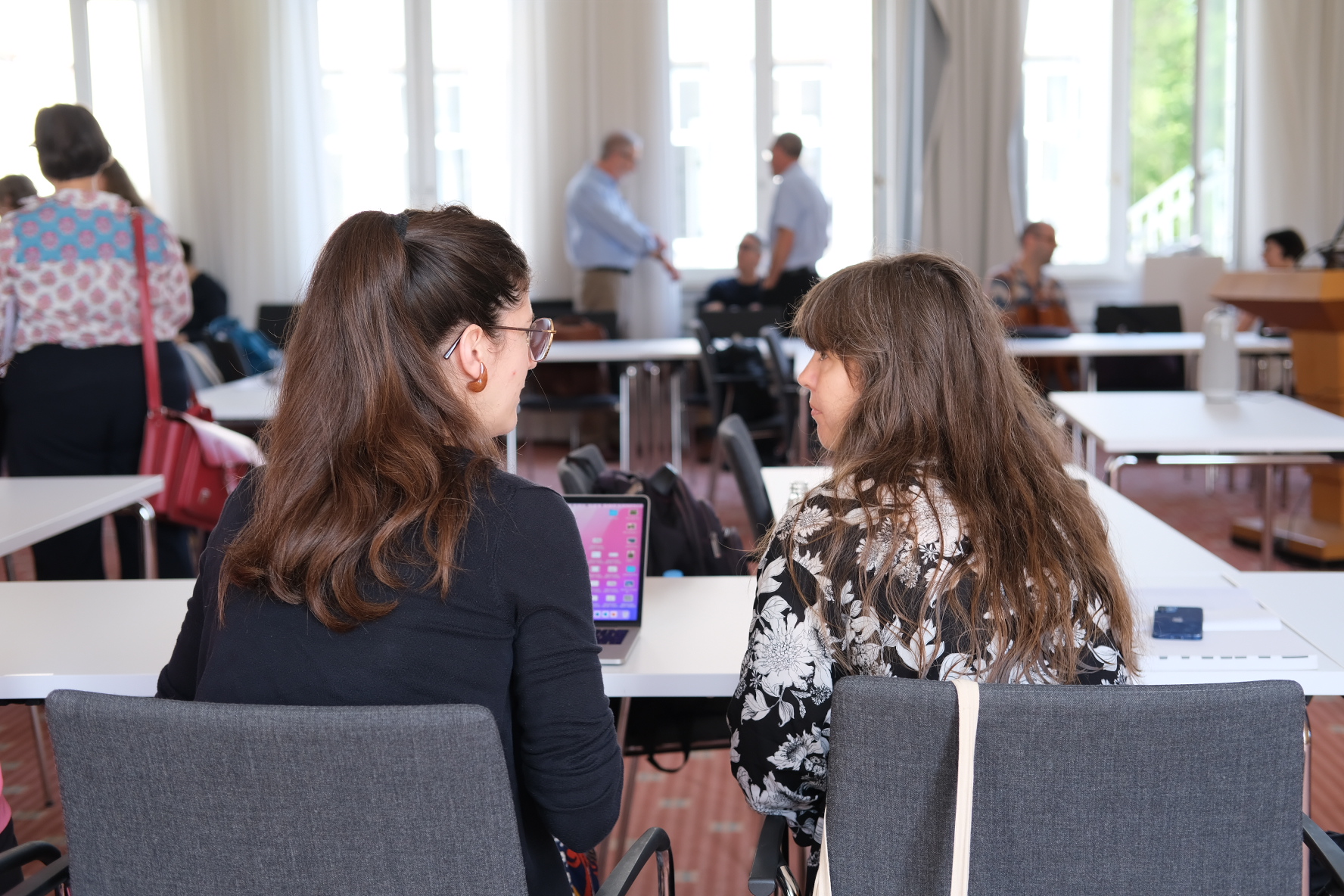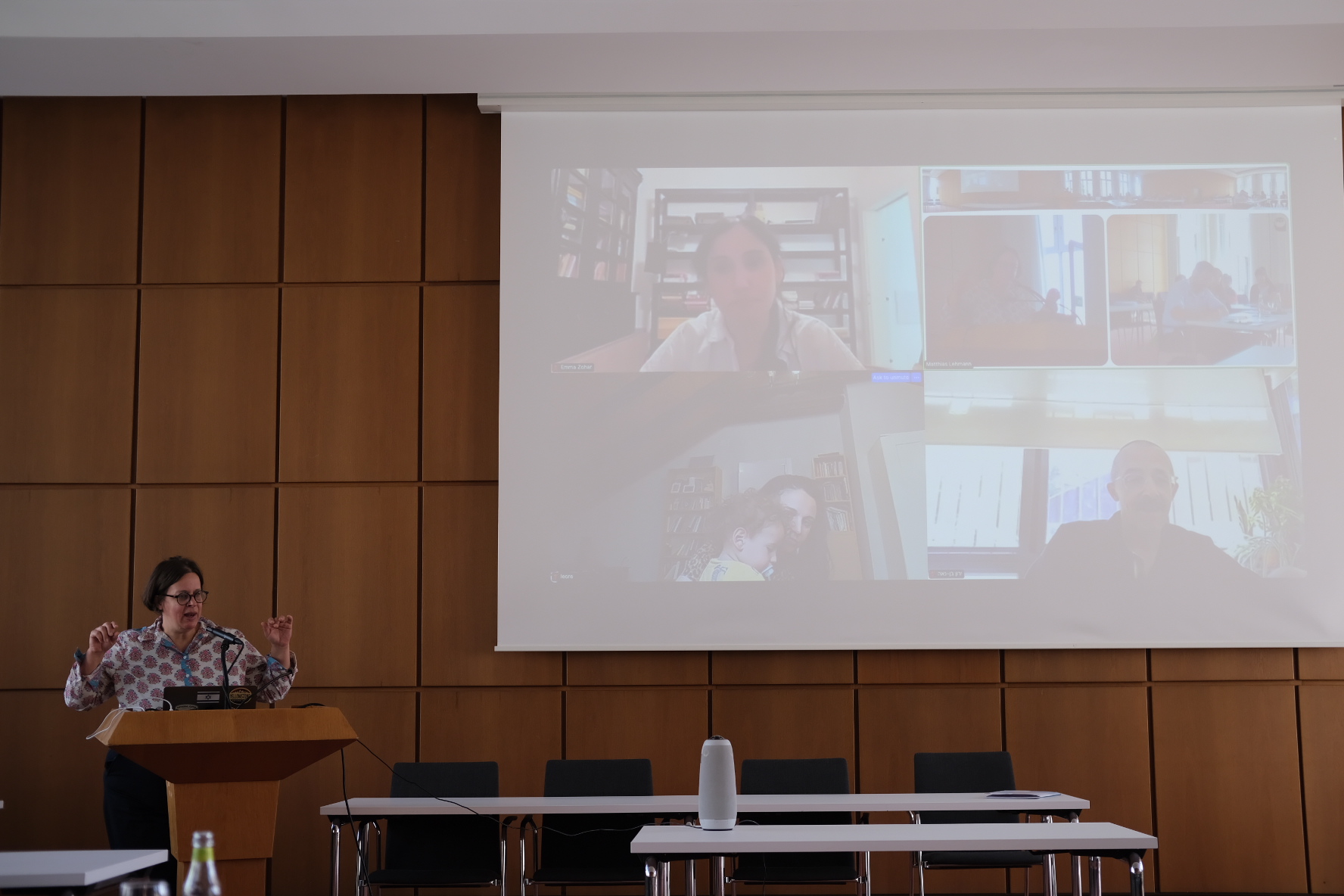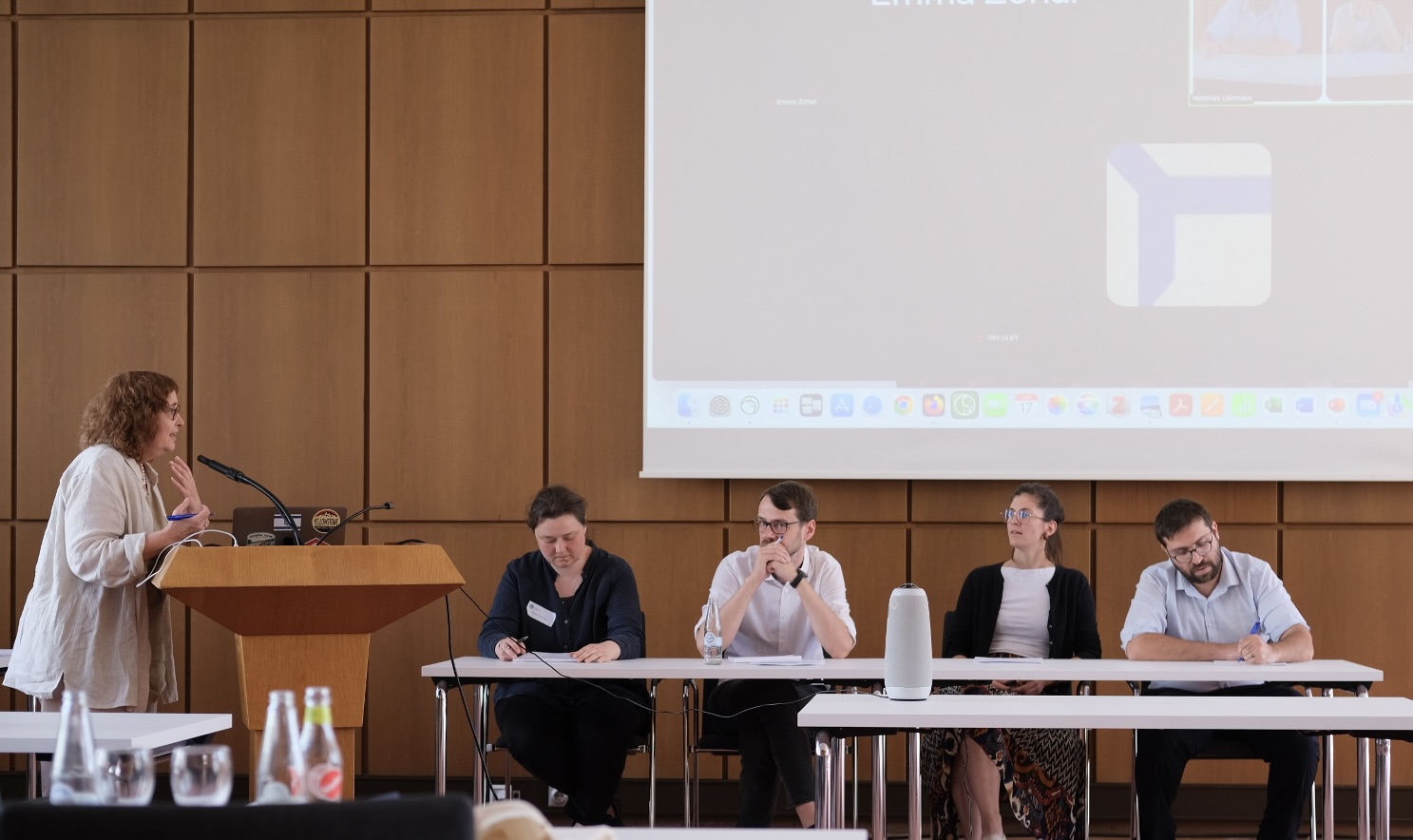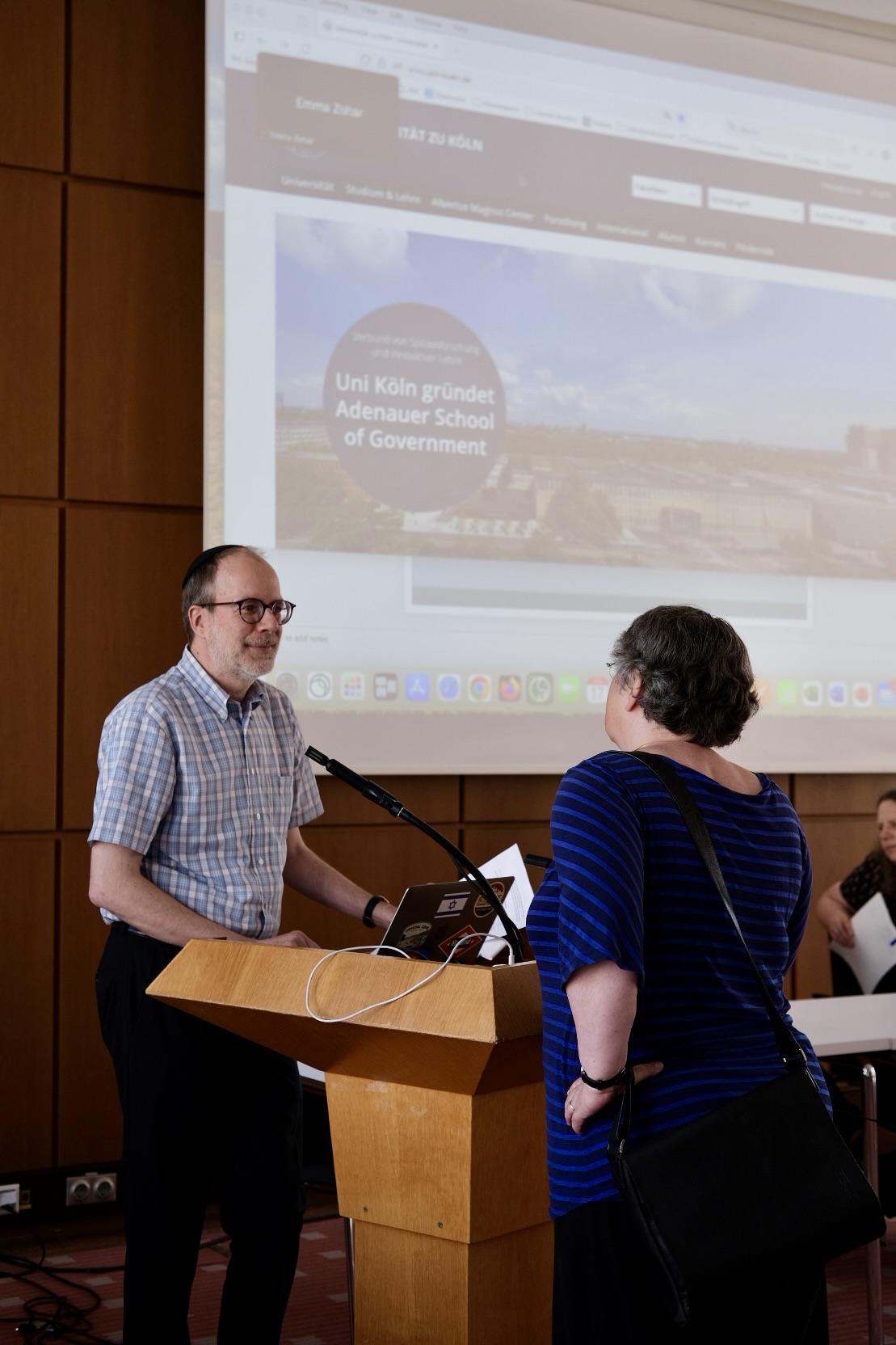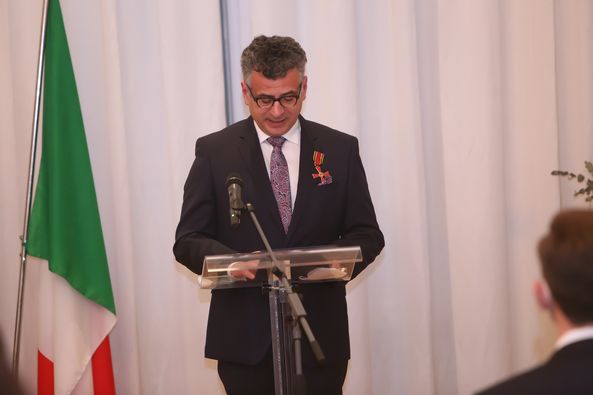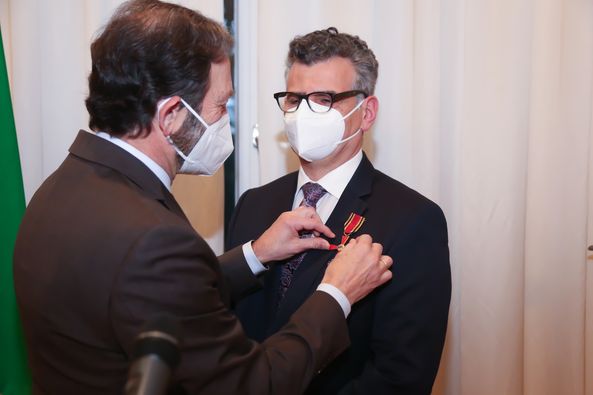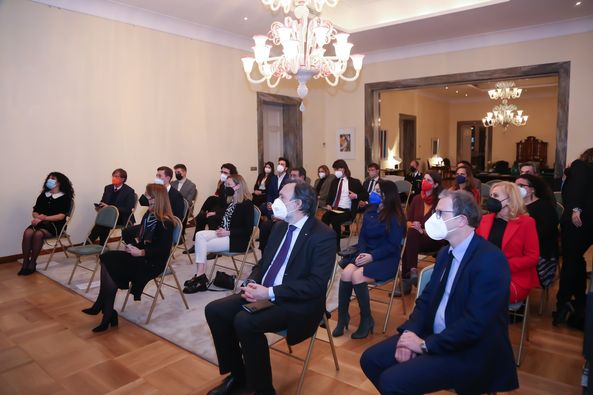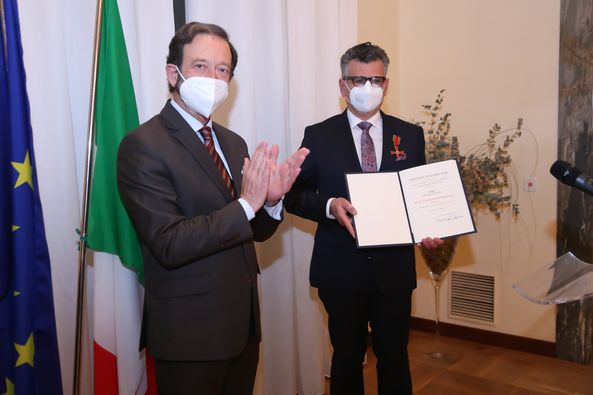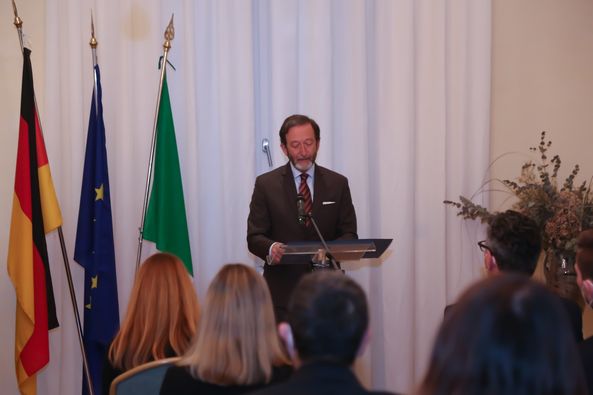International Conference "Jewish History and the History of Emotions"
On 16 and 17 June 2025, the Martin Buber Institute for Jewish Studies hosted the international conference ‘Jewish History and the History of Emotions’. The aim of the event was to link approaches of historical emotion research with Jewish history of the (early) modern period and to explore new research perspectives for a history of Jewish emotions.
Historical emotion research or the history of emotions understands emotions as historically and culturally shaped phenomena. It examines how emotions are discursively produced, linguistically conveyed and historically effective. One example of this is provided by Abraham Geiger, who emphasised at a rabbinical meeting in Braunschweig in 1844 that prayers in the mother tongue would have a deeper emotional impact and therefore argued for the retention of Hebrew in Jewish religious services.
In seven thematically diverse panels, international researchers from the USA, Israel, Great Britain and Germany discussed central aspects of Jewish emotional history. The first day of the conference was dedicated to the topics ‘Lachrymose History’, ‘Of Love and Shame’ and ‘Emotional Regimes in Early Modern Religion’, followed by panels on ‘Feelings of Belonging’, ‘Emotional Encounters, Mixed Feelings’, ‘Discourses of Family and Childhood’ and ‘Patriotic Feelings’ on the second day.
The highlight was the keynote lecture by Derek Penslar (Harvard University) entitled ‘Jews, Universities, and the Discourse of Betrayal’. Based on the current situation of Jewish students and teachers at US universities, Penslar traced the development of Jewish reactions to anti-Semitism since the 19th century. Penslar showed that today's accusation of ‘betrayal’ against academic institutions is rooted in a historically grown trust in American society - a trust that has been deeply shaken by current anti-Semitic incidents, especially since 7 October 2023. His analysis focussed on emotions such as belonging, alienation and trust and highlighted the interpenetration of emotions, politics and society.
The conference opened up new perspectives on Jewish history, encouraged discussion of the methodological and theoretical challenges of historical emotion research and was an enriching event for all researchers working on Jewish emotional history. We would like to thank everyone involved for their active participation!
Further information can be found here.
Research colloquium on Jewish history as part of the advanced seminar "The Jewish Mediterranean" summer semester 2024
Research colloquium on Jewish history
as part of the advanced seminar "The Jewish Mediterranean"
Summer semester 2024
Wednesdays, 10-11.30 a.m.
Philosophikum, seminar room S57
May 8, 2024
Avner Ofrath (Freie Universität Berlin)
A Language of One's Own: Unearthing Judeo-Arabic political writing in the late
nineteenth-century Maghreb
May 15, 2024
Tamir Karkason (Martin Luther University Halle)
Being Turkinos in the 1950s: Turkish Diasporas between Israel and Turkey (a joint project with Aviad Moreno, Ben-Gurion University of the Negev)
May 29, 2024
Michal Ohana (Martin Luther University Halle)
Raphael Moshe Elbaz's Kise ha Melakhim: Merging Jewish, North African and
Universal History
June 5, 2024
Allyson Gonzalez (University of Potsdam)
Painting the 'New Woman': Maxa Nordau and the Art of the Intimate
June 26, 2024
Asya Dördü (University of Cologne)
History of Zionism and postcolonial studies: An attempt at a connection using the example of Max Bodenheimer
July 3, 2024
Susanne Härtel (Humboldt University Berlin)
The rabbinic authority of the Constantinopolitan Eliyahu Mizraḥi in its
Mediterranean constellations around 1500
July 10, 2024
Franziska Weinmann (LMU Munich)
Aspects of a Jewish Mediterranean history in the works of Nachum Slouschz
(1872-1966)
Toledot Yeshu study day on June 27th, 2023
On June 27, 2023, a study day on the Toledot Yeshu will take place at the Martin Buber Institute for Jewish Studies under the direction of PD Dr. Francesco Zanella. International researchers will address the topic from different perspectives in their contributions. Interested parties can still register for participation with Mr. Zanella: zanella@uni-bonn.de
Further information can be found in the flyer.
Dr. Carlo Gentile awarded the Federal Cross of Merit
On March 15th, 2022, the Ambassador of the Federal Republic of Germany Viktor Elbling presented historian Carlo Gentile, research associate at the Martin Buber Institute for Jewish Studies, with the Federal Cross of Merit on Ribbon awarded to him by Federal President Frank-Walter Steinmeier on December 2nd, 2021 for his "contribution to the German-Italian culture of remembrance".
In his speech, Ambassador Elbling emphasized his outstanding role in researching the Italian-German past. "You have advanced research without polemics, always concretely and soberly in search of the historical truth and its consequences for our coexistence in the present." The ambassador also stated: "We are shocked by the images of the attack on Ukraine, because we thought that the war in Europe was now just a distant memory, unthinkable in our time. And yet, Dr. Gentile, you know very well that historical events cannot be locked up in books, considering them closed, far from our lives and our reality. We must come to terms with them and pass on their significance to future generations. We must strive to understand the dynamics of the past in order to prevent its recurrence. Scholars like you help us in this important task: the defense of peace and democracy, of values built on the ruins of a disastrous war."
Introduction to Synagogue Chant
Rabbi Dr. Daniel S. Katz and Prof. Dr. Mark Kligman, Wednesday May 11th, 2022; 5-6.30 p.m.
Liturgical and Biblical Chant
Dr. Daniel S. Katz
Martin Buber Institut, University of Cologne
Liturgical Choral Music
Prof. Mark Kligman
Herb Alpert School of Music, University of California at Los Angeles
The purpose of this talk is to familiarize a German audience with the basic concepts, practice, and development of synagogue song. Dr. Katz will speak about the role of the synagogue cantor and the principles of biblical and liturgical cantillation. Dr. Kligman will discuss the development and history of choral music in the synagogue. The program will focus on the music of Ashkenazi (German and eastern European) rituals.
The presentations will be held on Zoom in English. There will be time for questions (Dr. Katz will also be available afterwards to take questions in German).
The intended audience is students, researchers, and the general public—anyone with an interest in Jewish Studies, music, or both.
If you want to participate you can still register via shk-judaistikuni-koeln.de. We will then send you the link for Zoom.
Concert: "Sacred and secular choral music by Jewish composers of the 19th century"
Cologne Society for Christian-Jewish Cooperation and Cologne Academy, Sunday May 15, 3:00 pm, Groß St. Martin Cologne
To celebrate 1700 years of Jewish life in Germany, the Cologne Academy presents a program of sacred and secular music by Jewish composers of the 19th century, which is rarely heard today. The sacred texts come from both Jewish and Christian sources and thus combine these two religions, while the secular texts were written by well-known poets of the 19th century.
Although they were famous and well-known during their lifetimes, these composers and their music - with the exception of Mendelssohn - have all been forgotten.
Registration: until May 11, 2022 at anmeldung@koelnische-gesellschaft.de or 0221 3382 225
Lecture: "Antisemitimus: A German history"
Cologne Society for Christian-Jewish Cooperation, Tuesday, May 17, 6:00 pm, Kartäuserkirche Cologne
The Cologne Society for Christian-Jewish Cooperation has been able to secure the renowned historian Peter Longerich for its Brotherhood Week event. As part of the event, he will present his book "Anti-Semitism: A German History", which was published last year and in which he provides a historical analysis of anti-Semitism. In the book, he rejects the theory that religiously motivated hostility towards Jews only developed into political and social anti-Semitism in the course of Germany becoming a nation. Rather, it used a range of patterns that had been consolidated over centuries. Longerich also notes the continued existence of a historically traditional anti-Semitic basic current in the present day. In his lecture, he will also examine the role that the German history of anti-Semitism plays in its current forms and how these relate to German identity.
The Cologne Society for Christian-Jewish Cooperation asks you to register for the lecture by e-mail to anmeldung@koelnische-gesellschaft.de or by telephone.
Lecture by Dr. Peter Pogany-Wnendt: Mechanisms of trauma transmission. Effects of the current war situation in Ukraine on the emotional legacies of the descendants of victims of Nazi persecution
Lew Kopelew Forum, Neumarkt 18 50667 Cologne, Thursday June 9, 7 to 9 p.m.
Political and historical events trigger emotional reactions in individuals. They are primarily determined by the character of the event. However, they are also influenced by their own life-historical events. Finally, emotional legacies from the experiences of ancestors are activated by current experiences. The lecture explores the question of how traumas are passed on transgenerationally and what effects the current war situation in Ukraine can have on the emotional legacies of the descendants of victims of Nazi persecution.
About the speaker: Peter Pogany-Wnendt is a doctor and psychotherapist in Cologne and 1st Chairman of the Working Group for Intergenerational Consequences of the Holocaust, formerly PAKH. In his work, he has been dealing with the intergenerational consequences of the Holocaust and emotional legacies for many years.
Please register at pysmenna@nsberatung.de. If you are unable to attend in person, you can dial into the livestream via the following link: https://bit.ly/387bj6R
Admission is free.
Dialogue with Dr. Marion Mäder: "Concert Talks: What is Jewish Music?"
January 27, 2022, 4-6.30 pm, Seminar Building (106) of the University of Cologne
Organizers: Federal Ministry of the Interior, Martin Buber Institute for Jewish Studies at the University of Cologne, Salomon Ludwig Steinheim Institute for German-Jewish History, 321-2021: 1700 Years of Jewish Life in Germany e.V.
Dialogue with Dr. Marion Mäder: "Concert Talks: What is Jewish Music?"
December 16, 2021, 4-6.30 pm, Seminar Building (106) of the University of Cologne
Organizers: Federal Ministry of the Interior, Martin Buber Institute for Jewish Studies at the University of Cologne, Salomon Ludwig Steinheim Institute for German-Jewish History, 321-2021: 1700 Years of Jewish Life in Germany e.V.
Lecture by Dr. Nicolas Berg: "Cultural historians of the present catastrophe". Contemporary history in the diaries of Victor Klemperer 1942-1945
December 14, 5:45 pm, online
This lecture is part of the series "Kölner Perspektiven auf die Zeitgeschichte" of the Historical Institute of the University of Cologne. All lectures will take place online via Zoom.
Book presentation "Der jiddische Witz - Eine vergnügliche Geschichte" by Jakob Hessing (published by C.H.Beck, 2020)
November 3, 2021, 7:00 pm, lecture hall of the Germania Judaica, Cologne City Library
The wit of Yiddish, born of poverty and persecution, contrasts hardship with a smile that can be felt everywhere in this language. The Jews from Eastern Europe were always aware that they were living in exile. They never fell prey to the illusion that they had arrived or established themselves in society, as the Jews in the German cultural area believed, before they had to learn the bitter truth to the contrary in the 1930s and 1940s. The Eastern European shtetls were cramped and dirty, the legal status of their inhabitants was restricted and the contradiction between the myth of their religious chosenness, which they celebrated in worship, and the reality of everyday life was obvious. These contradictions turned Yiddish into a deeply ironic language. The Jerusalem-based German scholar Jakob Hessing explores this in his work.
The book will be presented in a discussion between Nicolas Berg (Martin Buber Institute) and Ursula Reuter (Germania Judaica); selected passages will be read in both Yiddish and German by Marian Fritsch (Institute for Yiddish Culture, Language and Literature, Heinrich Heine University Düsseldorf).
Not a single one: Werner Haftmann's politics of invitation and remembrance. Panel discussion with Dr. Carlo Gentile (Martin Buber Institute), art historian Vincenza Benedetto and curator Julia Voss
November 3, 2021, 6:30 pm, German Historical Museum, Berlin
Conference: Which historical narrative for the public? Fascism and National Socialism in historiography and mass media
October 11-13, 2021, Villa Vigoni, Milan
Dr. Carlo Gentile is a guest and speaker at Villa Vigoni, where he will report on his research into mass crimes committed by the German Wehrmacht in Italy during the Second World War.
Lecture by Dr. Nicolas Berg: Observers of the sick German era. The "Third Reich" and its consequences in the memoirs of Sebastian Haffner, Dolf Sternberger and Horst Krüger
October 6, 2021, Haus Königshügel of the RWTH Aachen University
The contribution is part of the conference Aggregates of the Present: Entgrenzte Literaturen und gegenläufige Erinnerungen, organized by Hans-Joachim Hahn and Christine Waltschmidt on the occasion of the double anniversary of Stephan Braese's 60th birthday and the 30th anniversary of the Ludwig Strauss Professorship for European-Jewish Literary and Cultural History at RWTH Aachen University from 5-7 October 2021 at Haus Königshügel.
War, Violence and the Image of Soldiers:
Between Private Memories and Public Representation
An International Workshop within the Framework of the Project
The Massacres in Occupied Italy (1943-45)
According to the Memories of the Perpetrators
Martin-Buber-Institute for Jewish Studies
University of Cologne
27th February 2020
The memory of the catastrophes of the 20th century is directly linked to the violence suffered. Historical research, and in particular oral history, has taken the point of view of the victims from an ethical perspective. However, this approach has its limitations. In the public and educational spheres, identification with victims paradoxically prevents us from really seeing and perceiving them. In the Nineties, a new field of research was introduced: Täterforschung - researching perpetrators. Its purpose is to analyze the psychological mechanisms, biographies and political careers, mentalities and motivations that led thousands of Germans to accept mass violence against defenseless people as legally justified.
Supported by the German-Italian Fund for the Future of the Ministry of Foreign Affairs of the Federal Republic of Germany, our project has the purpose of developing multimedia educational tools focused on the perpetrators of the massacres of the Second World War in Italy. These tools should become available to schools, exhibitions, and installations in memorials and museums.
Thus, the project is situated between different and often separate disciplines, such as academic historical research, public history and the didactics of history. With our project, we aim to disclose the memories of the perpetrators, to reconstruct their biographies and mentalities, as well as to collect evidence of trauma within their families.
In the first session of this workshop, we will discuss images and representations of soldiers in Germany, Italy and the Anglo-American world. We will focus on how German and Italian post-war societies have represented and elaborated images of WWII German soldiers.
In the second session, the workgroup will discuss the project‘s aims and methods and present its sources. This will include interviews with war criminals, documents from public archives and private collections relating to the German war experience in Italy, findings on the representation of the Täter in Italy and a bibliographical excursus into current trends of Täterforschung.
Program
09:30-12:30 First Session
The Image of WWII Soldiers between Memory and Social Construction
Daniel Brewing (RWTH Aachen): The German Soldier in Postwar German Discourses
Ben Shepherd (Glasgow Caledonian University): The Anglo-American Enemy in German Eyes
10:30-10:45 Coffee Break
Amedeo Osti Guerrazzi (Fondazione Museo della Shoah, Rome): A Sense of Wonder? Fascists’ Images of German Soldiers
Toni Rovatti (University of Bologna): Images of German and Italian Täter in Postwar Trials
Discussion
12:45-13:45 Break
14:00-17:00 Second Session
Presentation of the Project and Work Progress Reports
The Massacres in Occupied Italy (1943-45) According to the Memory of the Perpetrators
Discussant: Lutz Klinkhammer (German Historical Institute Rome)
Carlo Gentile (University of Cologne): Täter in Italien: Chances and Challenges
Udo Gümpel (TV-Journalist): Interviewing Perpetrators of Mass Violence in Italy
Francesco Corniani (University of Cologne): Writing about War and Violence: Ego-Documents on German War Experience in Italy
15:15-15:30 Coffee Break
Elena Pirazzoli (University of Cologne): Absences, Stereotypes, Exceptions: Representations of the Täter in Italian Places of Memory
Aiko Hillen (University of Cologne): Current Trends in Täterforschung. An Excursus
Discussion
